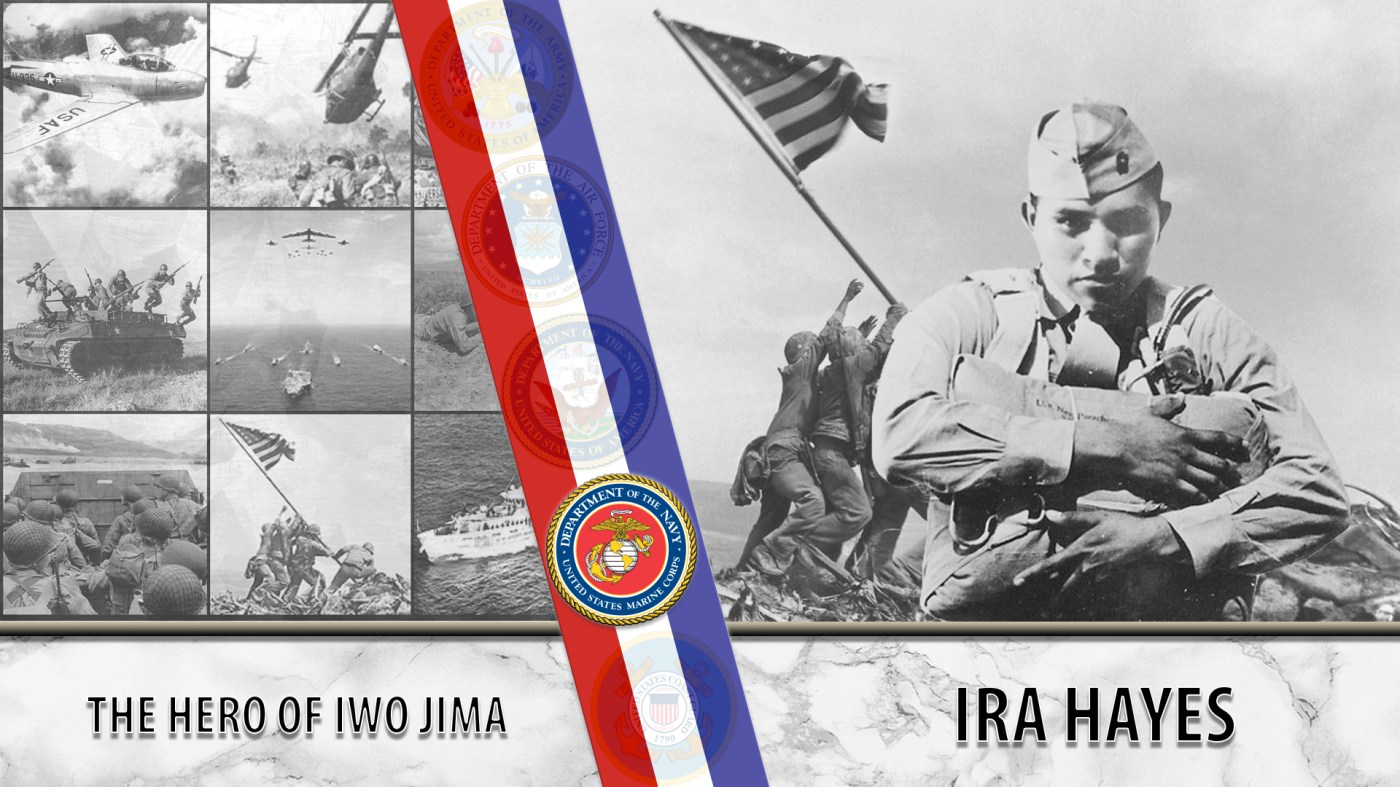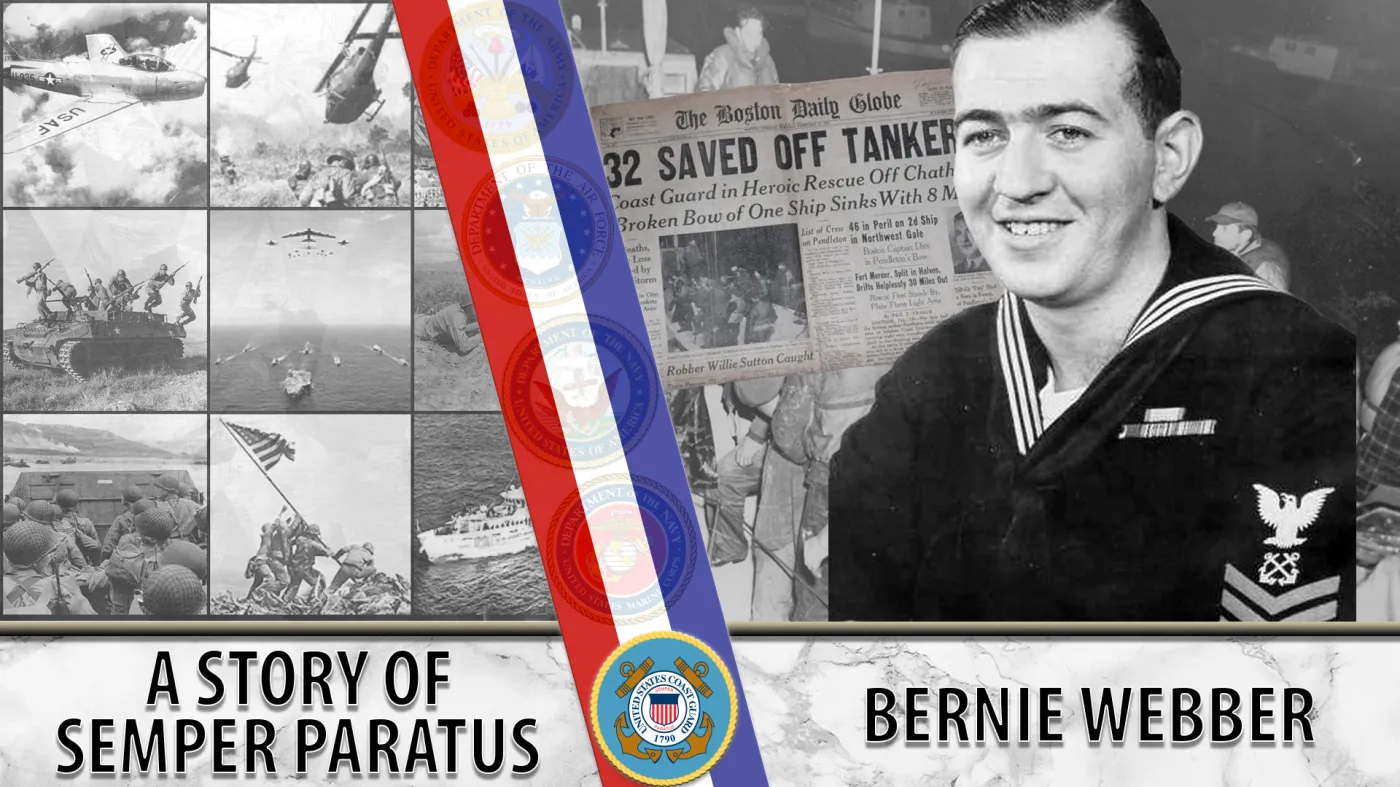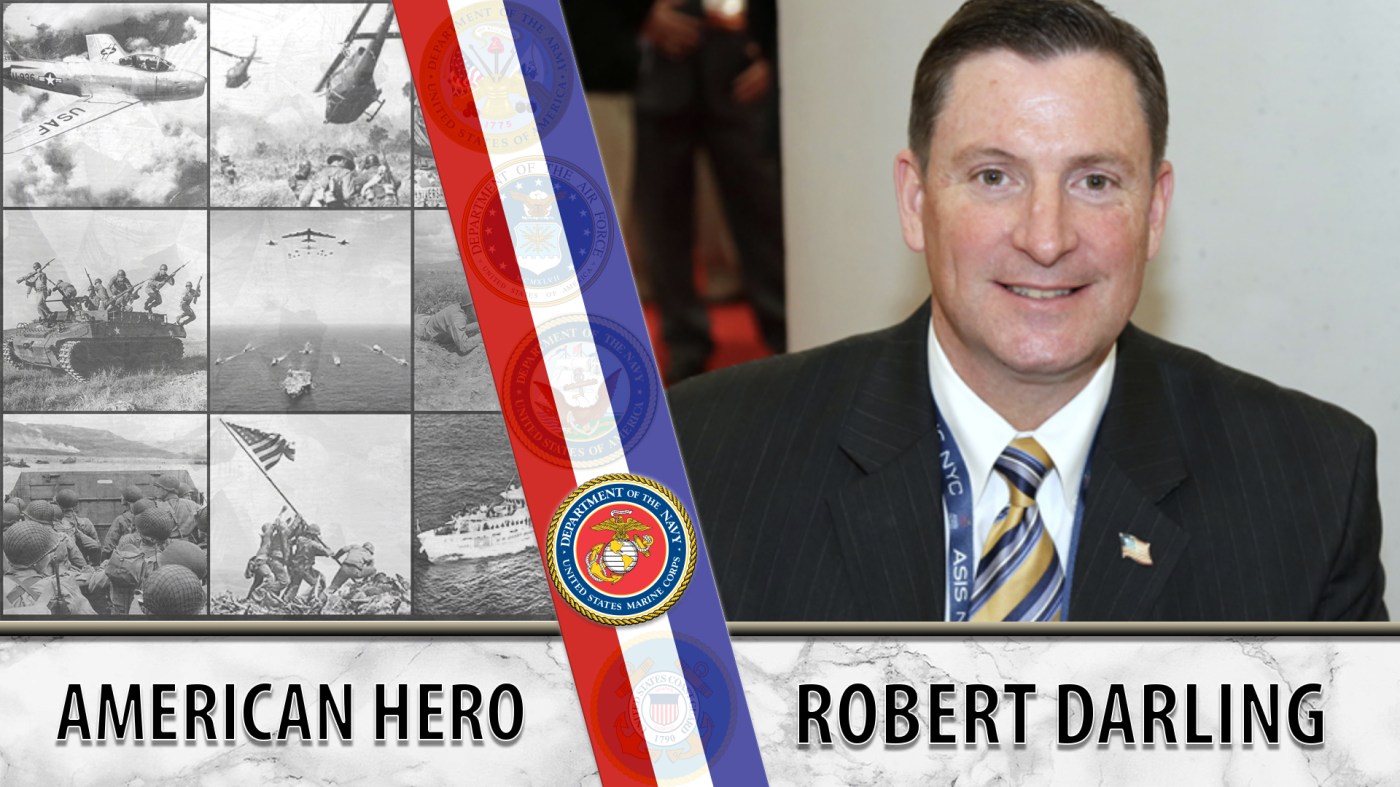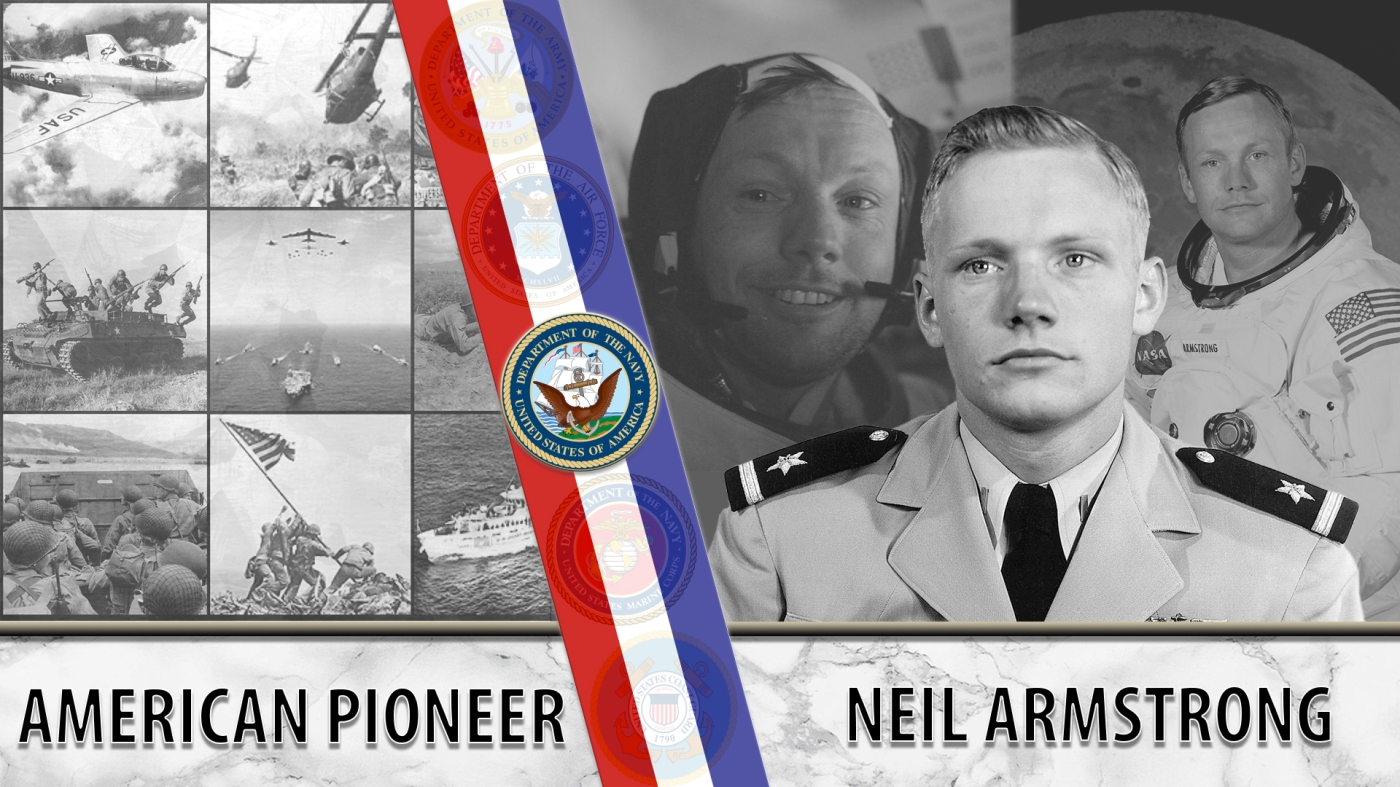
Ira Hayes was a Pima Indian Marine and one of the last surviving members of the Iwo Jima flag raising in World War II.
Born in January 1923, Ira Hamilton Hayes hailed from a Pima Indian family on the Gila River Reservation near Sacaton, Ariz., as the eldest of six children. Hayes’ father was a WWI Veteran who supported his family through sustenance farming and cotton harvesting.
Following in his father’s footsteps, Hayes enlisted in the Marine Corps in 1942. After completing recruit training in San Diego, Calif., Hayes volunteered for Marine paratrooper training at Camp Gillespie near San Diego. On Nov. 30, Hayes graduated from the Parachute Training School and earned his silver wings—as well as a nickname: Chief Falling Cloud. Promoted to private first class, he joined Company B, 3rd Parachute Battalion, Divisional Special Troops, 3rd Marine Division at Camp Elliott, California.
In March 1943, Hayes sailed for New Caledonia, spending 11 months in the Pacific and serving in battles at Vella Lavella Island and Bougainville Island. He eventually returned to San Diego in February 1944. The parachute units disbanded around the same time, and Hayes transferred to the 5th Marine Division at Camp Pendleton, California.
Iwo Jima
Later that year, Hayes moved to Hawaii for further training. In January 1945, he left for Iwo Jima along with 70,000 other Marines. The U.S. pushed forward toward the Japanese mainland.
It was at Iwo Jima that Hayes’ name and image became immortalized forever. Of the 70,000 men sent to capture the rocky outpost in the Pacific, 23,000 died trying.
On Feb. 23, 1945, to signal the end of Japanese control, Hayes and five other sailors raised the U.S. flag atop Mount Suribuchi on the island of Iwo Jima. Hayes fought on the island until it was secure on March 26. Hayes’ division had many casualties. He was one of five Marines remaining from his platoon of 45 men, including their corpsmen.
Joe Rosenthal’s Raising of the Flag on Iwo Jima became a symbol of the American victory in World War II. The two surviving flag raisers, Hayes and Gagnon, became national heroes. After the war, Hayes made numerous public appearances and was lauded by the public for his service. Despite the accolades, Hayes never felt at ease in the spotlight and felt that he shouldn’t be placed above his fallen comrades.
In November 1954, the U.S. Marine Corps War Memorial was unveiled at a dedication ceremony in Washington, D.C. President Dwight Eisenhower praised the Pima Marine as “a national war hero.” Just 10 weeks later, Hayes died near his home in Sacaton, Ariz. He was 32.
Ira Hayes was laid to rest in Arlington National Cemetery, finally at peace and reunited with many of his fallen brothers.
We honor your service, Ira Hayes.
Editor: Michelle Cannon
Fact Checker: Shweta Rao
Graphics: Jessica Hunsinger
Topics in this story
More Stories
Bernie Webber led one of the greatest Coast Guard rescues in history that was later chronicled in the book and movie, “The Finest Hours.”
As the events of 9/11 unfolded, Marine Veteran Robert Darling served as a liaison between the Pentagon and Vice President Dick Cheney in the underground bunker at the White House.
NASA astronaut Neil Armstrong was the first person to walk on the moon. He was also a seasoned Naval aviator.







True Hero….R.I.P. Sir……..my Respect.
Respect……Hero…..R.I.P…..Sir.
A true American Hero. He was pushed too far. The reservation was not fit for people to live. So, he turned to drink.
“The Ballad of Ira Hayes” as performed by Johnny Cash
CHORUS:
Call him drunken Ira Hayes
He won’t answer anymore
Not the whiskey drinkin’ Indian
Nor the Marine that went to war
Gather round me people there’s a story I would tell
About a brave young Indian you should remember well
From the land of the Pima Indian
A proud and noble band
Who farmed the Phoenix valley in Arizona land
Down the ditches for a thousand years
The water grew Ira’s peoples’ crops
‘Till the white man stole the water rights
And the sparklin’ water stopped
Now Ira’s folks were hungry
And their land grew crops of weeds
When war came, Ira volunteered
And forgot the white man’s greed
CHORUS:
Call him drunken Ira Hayes
He won’t answer anymore
Not the whiskey drinkin’ Indian
Nor the Marine that went to war
There they battled up Iwo Jima’s hill,
Two hundred and fifty men
But only twenty-seven lived to walk back down again
And when the fight was over
And when Old Glory raised
Among the men who held it high
Was the Indian, Ira Hayes
CHORUS:
Call him drunken Ira Hayes
He won’t answer anymore
Not the whiskey drinkin’ Indian
Nor the Marine that went to war
Ira Hayes returned a hero
Celebrated through the land
He was wined and speeched and honored; Everybody shook his hand
But he was just a Pima Indian
No water, no home, no chance
At home nobody cared what Ira’d done
And when did the Indians dance
CHORUS:
Call him drunken Ira Hayes
He won’t answer anymore
Not the whiskey drinkin’ Indian
Nor the Marine that went to war
Then Ira started drinkin’ hard;
Jail was often his home
They’d let him raise the flag and lower it
like you’d throw a dog a bone!
He died drunk early one mornin’
Alone in the land he fought to save
Two inches of water in a lonely ditch
Was a grave for Ira Hayes
CHORUS:
Call him drunken Ira Hayes
He won’t answer anymore
Not the whiskey drinkin’ Indian
Nor the Marine that went to war
Yeah, call him drunken Ira Hayes
But his land is just as dry
And his ghost is lyin’ thirsty
In the ditch where Ira died
Thank You for your devoted service to the Corps…….Semper Fi Marine may you rest in paradise..